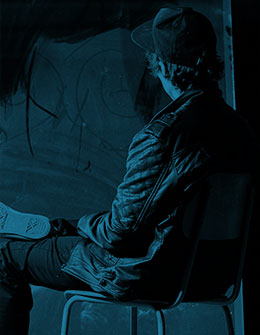What Is Depression?

All people have times in their lives when they are not happy. People have different names for this feeling, such as “bummed” or “feeling down” — or just unhappy. You are going to have good days and bad days, and that’s okay because you can usually learn how to deal with these troubles once you understand the problem. Usually these kinds of feelings only last for a few days, and then they usually go away.
But sometimes people continue to feel unhappy — or lose interest or pleasure in their normal activities — even after whatever caused them to become unhappy in the first place is done or gone. If these feelings last for two weeks or longer, and there are additional symptoms such as problems with sleeping, eating, energy, concentration, or self-image, these can be signs of a disorder called depression. Depression is a treatable medical condition. People with depression simply can’t feel happy, and this feeling gets in the way of normal activities such as school, extracurricular activities, relationships with friends or family members, and just generally feeling good.
Sometimes people even resort to drug use in an attempt to make themselves temporarily feel better; but this is a bad move, because drug use can actually worsen depression and lead to other mental health problems like anxiety and suicidal thoughts.
Symptoms of Depression
- Ongoing sad, anxious, or empty feelings
- Feelings of hopelessness
- Feelings of guilt, worthlessness, or helplessness
- Feeling irritable or restless
- Loss of interest in activities or hobbies that were once enjoyable, including being close to others
- Feeling tired all the time
- Difficulty concentrating, remembering details, or difficulty making decisions
- Not able to go to sleep or stay asleep (insomnia); may wake in the middle of the night, or sleep all the time
- Overeating or loss of appetite
- Thoughts of suicide or making suicide attempts
- Ongoing aches and pains, headaches, cramps, or digestive problems that do not go away





